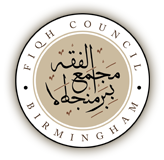Phone 07858 344 378 (9am-4pm Weekdays)
WELCOME to the Fiqh Council Birmingham (FCB). The FCB was establsihed to help meet the religious needs of the Muslim community. It offers faith based services in Islamic marital arbitration (Talaq/Khula etc.), training Islamic scholars and Imams, fatwa service and more...read more >
CATEGORIES
Aqeedah (3) Children (2) Cosmetics (1) Divorce (3) Fiqh (10) Food (17) Marriage (1) Medical (10) Money (6) New (3) Prayer (3) Rights (1)CATEGORY > Food
How should we approach food ingredients when its difficult to understand whether they are halal or not ?
QUESTION
Being here in the US, we're getting quite confused about ingredients in foods and the way to approach it. For example, we've discovered that most pizzas and pastries have l-cysteine in them. Similarly, ice creams and others types of desserts often have alcohol that isn't listed because it's used to carry flavors and it has either entirely or mostly evaporated in the production process. All of this stuff has become really confusing, so we were wondering if it's possible to get to the bottom of: 1) What we can and cannot eat and 2) Our approach to dealing with this stuff in situations that are tricky (i.e. with parents, non-Muslims, invites etc...).
ANSWER

الجواب حامداً و مصلياً
In the situation mentioned, one should note the following points regarding food items:
1. Products which consist of poultry and meat, the rule is that according to
the jurists they are considered as impermissible, until it is verified that the
religious slaughter was done correctly to make them halal.
2. Those products which are non-meat based, such as bread, milk and dairy
products, confectionery, soft drinks etc. are all considered halal (as the rule
of religious slaughter is not applicable here) until proven otherwise, for
example via confirmation from the manufacturer that an impermissible ingredient
is included in the finished product.
It should also be noted that in this second scenario of non-meat products, to
research the technical details of ingredients and their origin, which may not
be readily understandable or available to the average person, is not a
requirement. Similarly, one is not required to
ask about such non-meat products when they are served to you by others for
example as a guest.
However, if a person wishes to check or avoid a particular ingredient
or product out of precaution at a personal level then this commendable and it is advisable to look for halal or vegetarian certified products
where possible.
In the light of the above points, one may consume halal food and avoid the concerns raised in the question.
1/158:و في البحر الرائق شرح كنز الدقائق
(فُرُوعٌ ) فِي الْخُلَاصَةِ مَعْزِيًّا إلَى الْأَصْلِ يَتَوَضَّأُ مِنْ الْحَوْضِ الَّذِي يَخَافُ فِيهِ قَذَرًا وَلَا يَتَيَقَّنُهُ وَلَا يَجِبُ أَنْ يَسْأَلَ إلَى الْحَاجَةِ إلَيْهِ عِنْدَ عَدَمِ الدَّلِيلِ وَالْأَصْلُ دَلِيلٌ يُطْلِقُ الِاسْتِعْمَالَ وَقَالَ عُمَرُ رَضِيَ اللَّهُ عَنْهُ حِينَ سَأَلَ عَمْرُو بْنُ الْعَاصِ صَاحِبَ الْحَوْضِ أَتَرِدُهُ السِّبَاعُ يَا صَاحِبَ الْحَوْضِ لَا تُخْبِرْنَا ذَكَرَهُ فِي الْمُوَطَّإِ وَكَذَا إذَا وَجَدَهُ مُتَغَيِّرَ اللَّوْنِ وَالرِّيحِ مَا لَمْ يَعْلَمْ أَنَّهُ مِنْ نَجَاسَةٍ ؛ لِأَنَّ التَّغَيُّرَ قَدْ يَكُونُ بِطَاهِرٍ وَقَدْ يُنْتِنُ الْمَاءُ لِلْمُكْثِ وَكَذَا الْبِئْرُ الَّذِي يُدَلِّي فِيهَا الدِّلَاءَ وَالْجِرَارَ الدَّنِسَةَ يَحْمِلُهَا الصِّغَارُ وَالْعَبِيدُ وَلَا يَعْلَمُونَ الْأَحْكَامَ وَيَمَسُّهَا الرُّسْتَاقِيُّونَ بِالْأَيْدِي الدَّنِسَةِ مَا لَمْ تُعْلَمْ يَقِينًا النَّجَاسَةُ ، وَلَوْ ظَنَّ الْمَاءَ نَجِسًا فَتَوَضَّأَ ثُمَّ ظَهَرَ أَنَّهُ طَاهِرٌ جَازَ وَذَكَرَ السِّرَاجُ الْهِنْدِيُّ عَنْ الْفَقِيهِ أَبِي اللَّيْثِ أَنَّ عَدَمَ وُجُوبِ السُّؤَالِ مِنْ طَرِيقِ الْحُكْمِ ، وَإِنْ سَأَلَ كَانَ أَحْوَطَ لِدِينِهِ وَعَلَى هَذَا الضَّيْفُ إذَا قُدِّمَ إلَيْهِ طَعَامٌ لَيْسَ لَهُ أَنْ يَسْأَلَ عَنْهُ...
And Allah knows best
Answered by FCB Fatwa Department
